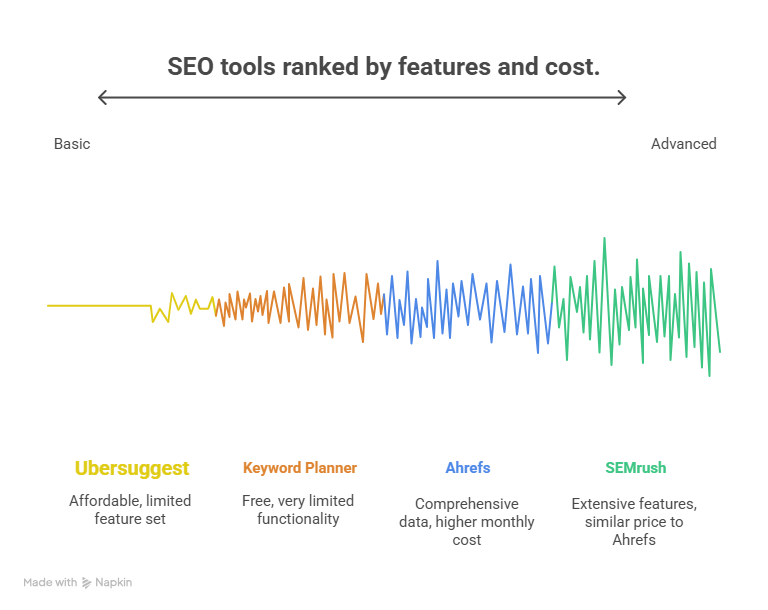A well-organized keyword strategy is crucial for effective content planning. Did you know that businesses that use a structured approach to keyword management see a significant improvement in their SEO efforts? This is where keyword clustering comes into play, allowing you to group related keywords together to boost your content’s relevance.
By utilizing a keyword research tool, you can identify and categorize keywords that are closely related to your content, enhancing your overall SEO strategy. This approach not only streamlines your content planning but also ensures that your content resonates with your target audience.
As we dive deeper into the world of content planning, it becomes clear that effective keyword clustering is key to unlocking your content’s full potential. In this article, we’ll explore how to leverage keyword clustering to improve your content planning and drive more traffic to your site.

Understanding the Power of Keyword Clustering
Keyword clustering stands out as a pivotal method for organizing and prioritizing content. By grouping related keywords together, businesses can significantly enhance their content’s visibility and appeal to both users and search engines. This technique is crucial for creating a well-structured content strategy.
What Makes Keyword Grouping Essential for SEO
Keyword grouping is essential for SEO because it allows businesses to identify and organize their keywords into meaningful clusters. This process enhances the relevance and coherence of content, making it more attractive to search engines. By using keyword grouping software, companies can streamline their SEO efforts and improve their content’s overall performance.
How Clustering Improves Content Relevance and Rankings
Clustering keywords improves content relevance by ensuring that all related topics are covered comprehensively. This approach helps in creating content that is more aligned with user intent, thereby enhancing its relevance and appeal. As a result, SEO keyword grouping can lead to better search engine rankings and increased online visibility.
Best Keyword Clustering Tools to Streamline Your Process
To enhance your SEO strategy, leveraging the right keyword clustering tools, is essential. These tools help in organizing keywords into relevant clusters, making it easier to plan and execute a targeted content strategy.
Free and Budget-Friendly Clustering Solutions
For those on a tight budget, there are several free and budget-friendly keyword clustering tools available. Tools like Keyword Planner and Ubersuggest offer basic clustering features that can help you get started. While they may not have all the advanced features, they are a great starting point for small businesses or individuals.
Professional Keyword Analysis Software for Advanced Users
For more advanced users, professional keyword analysis software like Ahrefs and SEMrush, offer comprehensive clustering capabilities. These tools provide detailed insights into keyword performance and competition, enabling you to refine your SEO strategy.
Comparing Features Across Popular Clustering Tools
When choosing a keyword clustering tool, it’s essential to compare features across different options. The table below highlights some key features of popular clustering tools:
| Tool | Clustering Feature | SEO Insights | Price |
|---|---|---|---|
| Keyword Planner | Basic | Limited | Free |
| Ahrefs | Advanced | Comprehensive | $99/month |
| SEMrush | Advanced | Comprehensive | $99.95/month |
| Ubersuggest | Basic | Limited | $29/month |

By comparing these features, you can select the keyword organization tool or keyword grouping tool that best fits your needs and budget, thereby streamlining your content planning process.
Implementing Effective Keyword Clustering Strategies
To maximize the potential of your content, implementing effective keyword clustering strategies is crucial. By grouping relevant keywords together, you can create a more cohesive content plan that resonates with your target audience.
Step-by-Step Guide to Creating Your First Keyword Clusters
Creating keyword clusters involves several steps. First, identify your core keywords using a keyword analysis tool or software. Next, analyze the search intent behind these keywords to determine their relevance. Then, group related keywords together based on their semantic meaning. Finally, refine your clusters by removing any irrelevant keywords.
Transforming Keyword Groups into Content Plans
Once you have created your keyword clusters, you can start transforming them into actionable content plans. Begin by identifying content gaps, within your clusters. Then, develop a content strategy that addresses these gaps. Use your keyword clusters to create a content calendar that outlines the topics and keywords you will cover.
Common Clustering Mistakes to Avoid
When implementing keyword clustering strategies, there are several common mistakes to avoid. These include:
- Over-clustering: Creating too many clusters can lead to confusion and dilute your content’s focus.
- Under-clustering: Failing to group enough keywords together can result in a lack of cohesion in your content plan.
- Ignoring keyword intent: Neglecting to analyze the search intent behind your keywords can lead to irrelevant content.
Conclusion
Effective keyword clustering is a game-changer for content planning and SEO efforts. By grouping relevant keywords together, you can create a more cohesive content strategy that resonates with your target audience and improves your online visibility.
Utilizing a keyword planner, tool can help streamline this process, allowing you to identify and organize keywords efficiently. As you integrate keyword clustering into your content strategy, you’ll be better positioned to achieve your online marketing goals and stay ahead of the competition.
To maintain and improve your keyword clustering strategy over time, regularly review and refine your keyword groups, ensuring they remain relevant and aligned with your content objectives. By doing so, you’ll continue to reap the benefits of a well-planned content strategy and achieve long-term success in the ever-evolving landscape of search engine optimization.
FAQ
What is keyword clustering, and how does it improve SEO?
Keyword clustering is the process of grouping related keywords together to enhance content relevance and search engine rankings. By organizing keywords into clusters, you can create more targeted and comprehensive content that resonates with your audience and improves your SEO efforts.
What are the benefits of using keyword clustering tools?
Keyword clustering tools help you identify and organize keywords into meaningful clusters, streamlining your content planning process and improving your content’s visibility. These tools enable you to create a more effective SEO strategy, drive more traffic to your site, and boost your online marketing efforts.
How do I choose the best keyword clustering tool for my needs?
When selecting a keyword clustering tool, consider factors such as your budget, the complexity of your keyword list, and the features you need. Compare popular clustering tools, including free and budget-friendly options like Google Keyword Planner and professional keyword analysis software like Ahrefs or SEMrush, to find the best fit for your content planning needs.
Can I use keyword clustering for content planning if I’m new to SEO?
Absolutely! Keyword clustering is a valuable technique for content planning, regardless of your level of SEO experience. By using keyword clustering tools and following a step-by-step guide, you can create effective keyword clusters and transform them into actionable content plans that drive results.
How do I avoid common clustering mistakes?
To avoid common clustering mistakes, ensure that you’re using a clear and consistent clustering methodology, regularly reviewing and refining your keyword clusters, and leveraging keyword analysis tools to identify new opportunities and optimize your content strategy.
What is the role of keyword grouping software in content planning?
Keyword grouping software plays a crucial role in content planning by helping you organize your keywords into relevant clusters, identify patterns and opportunities, and create targeted content that resonates with your audience. By using keyword grouping software, you can streamline your content planning process and improve your SEO efforts.

